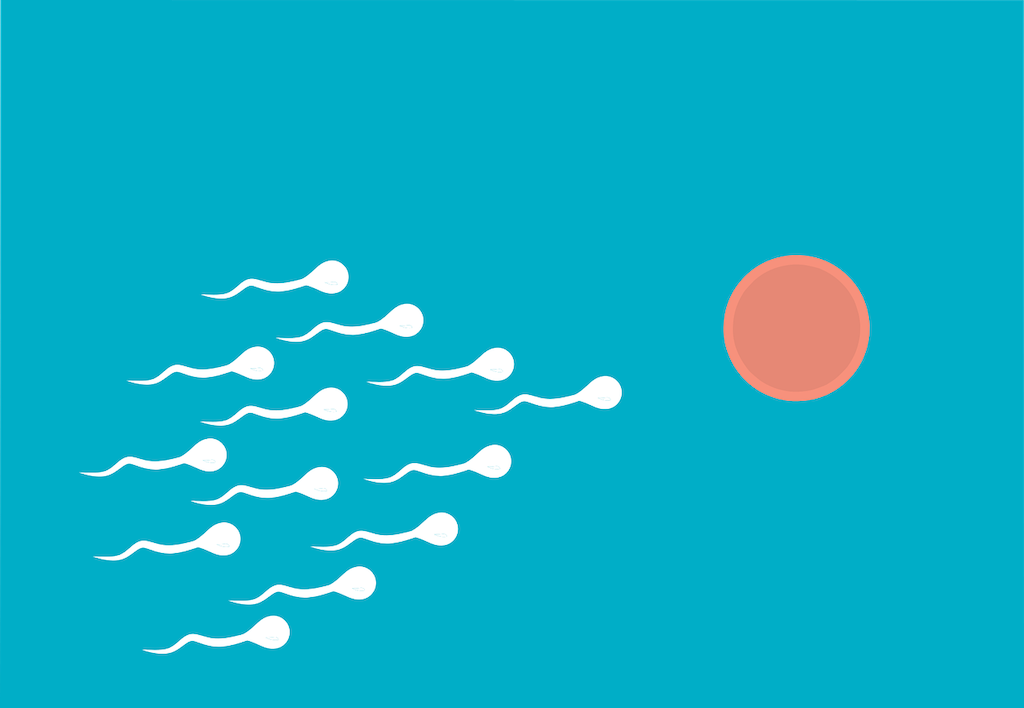SingaporeMotherhood | Baby & Toddler
April 2023
Update on Male Fertility in Singapore

Still think it’s taboo for a ‘real man’ to talk about reproduction? Heads up, we’re in 2023 now and male infertility — defined as the inability for a male to achieve pregnancy with his fertile partner within one year of regular attempts at conception — is no longer a hush hush topic. In fact, according to Dr Ee Tat Xin, a Consultant at the Department of Reproductive Medicine, KK Women’s and Children’s Hospital, there has been a rise in the number of men seeking fertility treatment at the andrology clinic there. Moreover, majority of them are “very open” about speaking about male fertility issues with their doctors. “The need for fertility awareness has taken precedence over the stigma of being labelled as infertile,” Dr Ee reckons.
Furthermore, it is not just men in their 20s and 30s, who are hoping to have a baby, who face male fertility issues. Dr Ee also sees adolescents and teenagers (usually for fertility preservation due to their pre-existing conditions) as well as men in their ‘golden years’. Here, he gives us an update on the state of male fertility in Singapore.
Common male fertility issues in Singapore
There are three major categories of male infertility:
- erection disorders
- ejaculation disorders
- sperm disorders
Erection and ejaculation disorders commonly manifest together, and can be a real challenge for men trying to achieve pregnancy. A sperm test is the only way to diagnose sperm disorders. This shows if the sperm count, motility, or morphology (shape) of the sperm is abnormal.
The most common reason for male infertility in Singapore is declining sperm parameters that contribute to the couple’s infertility.
Worsening sperm parameters like reduced count, reduced motility, and poor morphology are prevalent worldwide as global birth rates decline. In fact, the World Health Organization criteria in 2021 for normal sperm count was 16 million per millimetre of ejaculate. This is a drop as compared to the criteria of 20 million sperm per millimetre of ejaculate before the 2000s.
How to identify male infertility issues

Erection and ejaculation disorders are obvious enough. When a couple has tried to conceive for a period of time unsuccessfully, typically the main test for male fertility will be a semen analysis (SA) test. Further testing depends on the results of the SA.
The concentration of the semen may range from zero to hundreds of millions. However, that does not mean that the man with low sperm count will not conceive, or that the man with high sperm count will definitely conceive.
Factors that affect male fertility
Many health conditions can affect a man’s fertility. Examples include:
- advanced age, obesity
- sexually transmitted infections
- birth defects
- autoimmune disorders
- enlarged varicose veins
- steroid abuse
- exposure to toxic or hazardous substances
- prolonged or repeated exposure to high temperatures
Ways to improve male fertility

Men can try to improve their fertility by making lifestyle modifications such as avoiding smoking, alcohol consumption and taking drugs. They should also make sure that they have a healthy body mass index.
There is increasing evidence that sperm quality and quantity decline gradually with age. Hence men aged 40 years and above contribute to reduced fertility and fecundity (maximum potential reproductive ability) of a couple, especially when the female partner is also of advanced age.
There are also observations that sperm DNA damage is significantly higher in older men, and that this is detrimental to reproductive outcomes. In addition, there may be an increased incidence of sexual dysfunction in older men.
Treatments for male infertility in Singapore
Treatment of male infertility depends largely on the cause. It is possible to reverse infertility due to a previous vasectomy (male sterilisation) or recent hormonal or steroid usage. Men with poor sperm due to chronic diseases such as obesity or diabetes will often see improvement after optimising their chronic diseases.
However, causes such as testicular failure, genetic disorders, or congenital absence of the vas deferens (long muscular tube that propels sperm into the urethra during ejaculation) are not reversible. Men with these conditions are likely to be recommended to look towards in-vitro fertilisation (IVF) and/or surgical sperm retrieval for their best chance at conception.
(See also: When Should You Consider IVF, if you are Trying to Conceive?)
Can male infertility be overcome with alternative therapies such as TCM?
Patients who are want to pursue alternative therapies need to check that these therapies are safe and non-invasive. However, those with serious fertility issues or who have been trying alternative therapies for a long time without success should seek treatment with an accredited fertility specialist.

What are 3 biggest misconceptions about infertility that you’d love to set the record right on?
1) Infertility can always be treated, especially with medical advancements in assisted reproductive techniques.
This is not true. Even with medical advancements, the cause(s) of infertility in some couples remain unknown. In couples who are lacking eggs or sperm, the outcome often still depends on the donation of eggs or sperm. And although treatment and procedures have advanced medically, they all carry some form or level of risk. There is no guarantee of successful conception even with treatment.
2) You can only conceive with certain sex positions.
There is no scientific evidence regarding sex position and successful pregnancy. The key is to increase the frequency of sex to maximise the chance of the sperm meeting the egg.
3) As long as you time it accurately, you can conceive at the first go.
While timing for ovulation may be a sound theory, it is often stressful or logistically demanding. Depending on the physiological patterns of the individual patient, a fertile period may still not be accurately predicted, even with ovulation prediction kits. This may sometimes lead to higher stress levels or friction between the couple. Having good old-fashioned recreational sex as often as you can helps to take the edge off “procreation sex”.
Dr Ee Tat Xin was a speaker at the annual Know Your Fertility Wellness Campaign by I Love Children (ILC). The campaign aims to encourage more couples to be aware of their fertility health, and go for fertility consultations together. Visit www.ilovechildren.sg to learn more about your fertility health today.
Featured image: sarahbernier3140 from Pixabay
All content from this article, including images, cannot be reproduced without credits or written permission from SingaporeMotherhood.
Follow us on Facebook, Instagram, and Telegram for the latest article and promotion updates.





